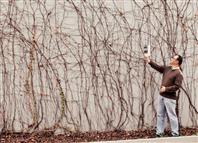Please tell us about your path to becoming a poet.
At the National University of Singapore (NUS) where I did my first and second degrees, I took a course on Singaporean and Malaysian literature. I liked it and studied it in a traditional, scholarly manner. But literature is not only about reading people’s works, but also about producing them and understanding why writers write. So I became interested in creative writing and poetry. Poetry gives you the freedom to destroy and decompose language. It allows you not to make sense (at least not initially) and to bring arbitrary things together to achieve a higher kind of sense. Prose tends to be more coherent and linear. There was a time when I spent two to three hours every night working on a novel only to find that it wasn’t working for me after a year.
What have been your major struggles and challenges as a poet, apart from the sense of inadequacy (from not being as well-versed in Chinese culture as you’d like) as expressed in ‘A Second Language’?
I like literature because it gives me a good reason to read and write and be solitary. I’m not a very socially inclined person. But being a poet is also about reading your poems and organizing events. I have to force myself to go out and give readings. I’ve also given talks at various public events such as the Hong Kong International Literary Festival as well as the Hong Kong Book Fair.
What has your experience teaching creative writing at CUHK been like?
Students from different backgrounds take my creative writing course every year. Poetry isn’t only about your grasp of the language; it’s about life and your feelings. As long as you feel, you can write. In Hong Kong, English is a pragmatic language. It’s a tool, but I try to show my students that it’s also a medium of thinking and feeling, one that has to do with their cultural identity.
To write poetry, you have to think in different ways and to do that, I teach them various writing strategies. One of them involves reverse-engineering a poem and through the process, they would find their own voices. Sometimes I have them write between the lines of a poem, or pretend they understand a poem in French or Italian and translate it into English. I also show them images and have them respond to them.
The Mental Life of Cities recently won the biennial 2012 Singapore Literature Prize (English Category). Most of the poems in the book were written in free verse. How important is metre to contemporary poetry?
In general, most poets writing today engage in free verse. But free verse is about abandoning traditional rules to follow other artistic rules; as T.S. Eliot says, it’s never really free. How a poem sounds becomes very important. That said, there are different aesthetics to poetry. Some poets have no sense of sound, but handle abstractions very well and there is a wonderful rhythm to their ideas. Some have a great sense of sound and their poems lend very well to being read out loud.
What is the main difference between writing in post-colonial Hong Kong and post-colonial Singapore?
English is more commonly used in Singapore, so English-language poets can apply for publishing grants and for funding to read at literary festivals or take part in seminars. There’s a larger audience for English language writing in Singapore. In Hong Kong, there’s a lot more support for Chinese writing.
Any favourite poets?
Yes, Edwin Thumboo, who many consider to be the founding father of Singaporean poetry. He was my mentor for a year while I was an undergraduate. There were seven of us in his class and we met twice a week. I still meet up with him when he comes to Hong Kong. 


































































































































































Social Bookmarks